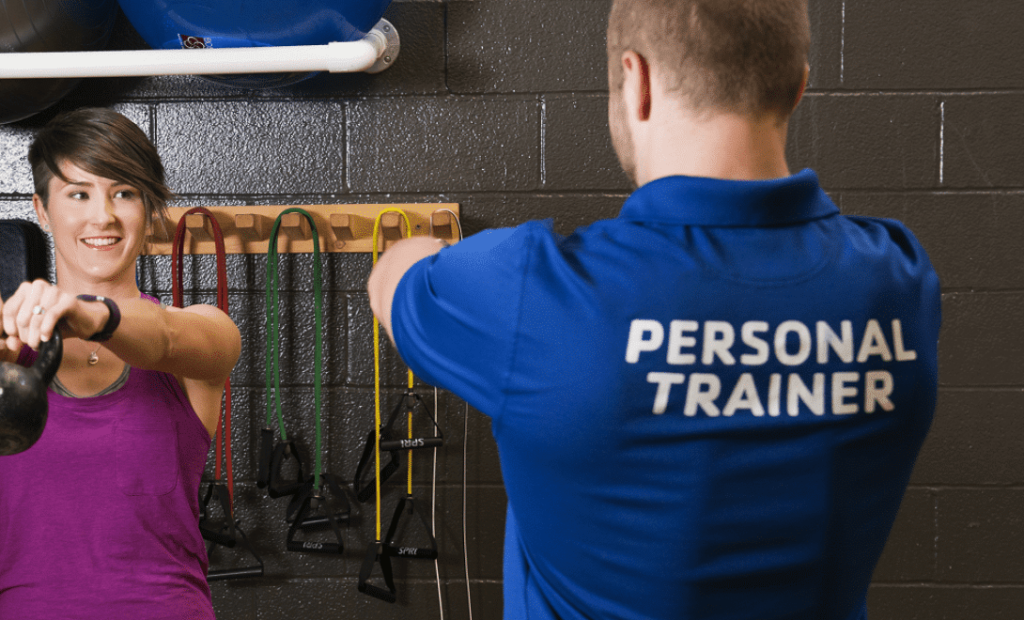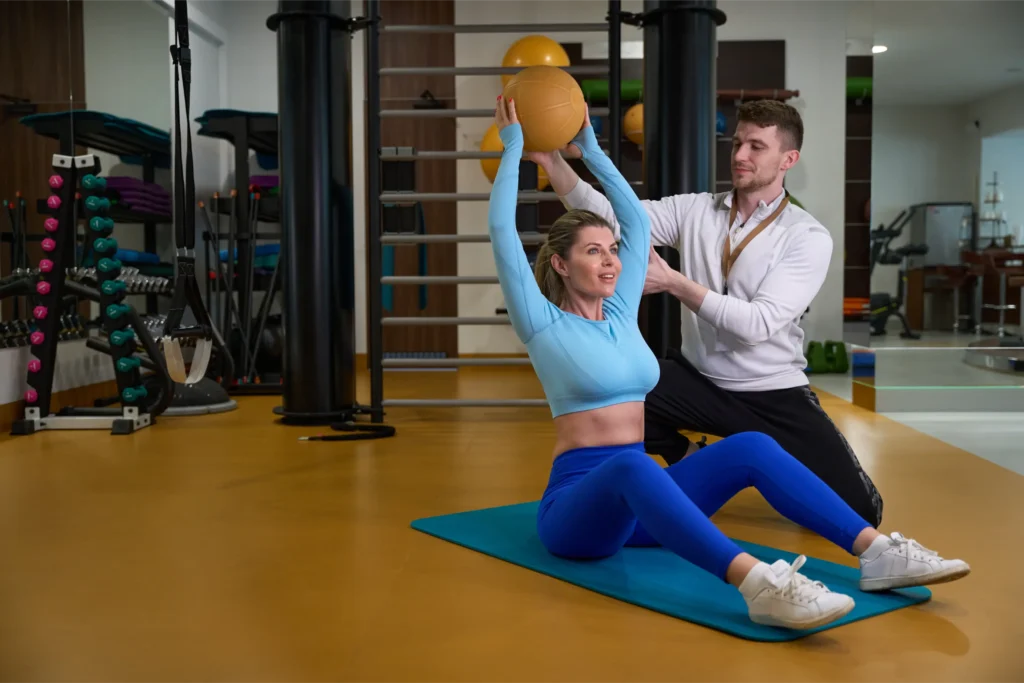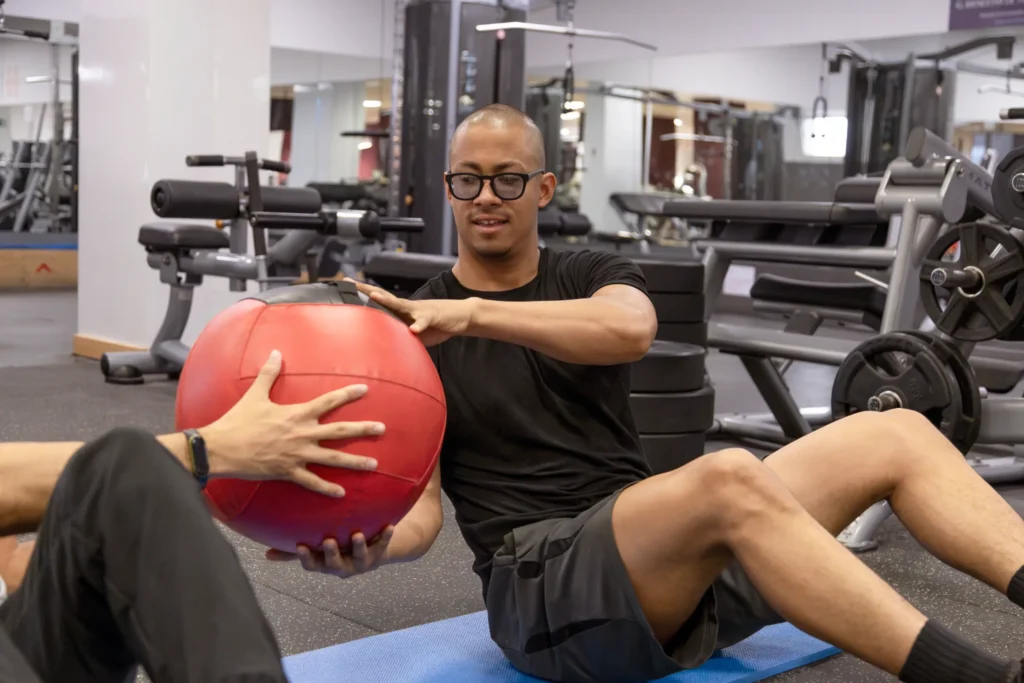Gym Instructor Myths: Debunking Common Misconceptions

Gym instructors play a crucial role in helping individuals achieve their health and fitness goals, but there are many myths and misconceptions surrounding this profession. These myths can lead to misunderstandings about the qualifications, responsibilities, and impact of gym instructors. In this article, we’ll debunk some of the most common gym instructor myths and shed light on the truth behind the work of these dedicated fitness professionals.
Myth 1: Anyone Can Be a Gym Instructor
One of the most prevalent myths is that anyone can become a gym instructor without proper education or qualifications. However, the reality is quite different. To work as a gym instructor in Australia, individuals must complete a nationally recognized qualification, such as the Certificate III in Fitness (SIS30321) or Certificate IV in Fitness (SIS40221).
These qualifications, offered by reputable institutions like the College of Health and Fitness (COHAF), cover essential topics such as anatomy, physiology, exercise programming, and client assessment. By completing a Certificate III in Fitness (SIS30321) or Certificate IV in Fitness (SIS40221), aspiring gym instructors gain the knowledge, skills, and practical experience needed to provide safe and effective fitness guidance to clients.
Myth 2: Gym Instructors Only Focus on Exercise
Another common myth is that gym instructors solely focus on teaching exercises and counting reps. In reality, the role of a gym instructor extends far beyond just demonstrating exercises. Gym instructors are responsible for:
- Assessing clients’ fitness levels and health history
- Designing personalized exercise programs based on individual goals and needs
- Educating clients on proper form, technique, and safety
- Providing motivation, support, and accountability to help clients stay on track
- Monitoring progress and adjusting programs as needed
- Offering guidance on nutrition, lifestyle habits, and overall wellness
Gym instructors take a holistic approach to health and fitness, recognizing that exercise is just one piece of the puzzle in helping clients achieve their goals.

Myth 3: Gym Instructors Have Perfect Bodies and Lifestyles
It’s a common misconception that all gym instructors have perfect physiques and lead flawless, healthy lifestyles. While many gym instructors are passionate about their own health and fitness, they are still human and face the same challenges and struggles as everyone else.
Gym instructors come in all shapes, sizes, and fitness levels, and their worth as professionals is not determined by their physical appearance. What truly matters is their knowledge, expertise, and ability to help clients make positive changes in their lives. Gym instructors understand that health and fitness are ongoing journeys, and they are there to support and guide clients along the way.
Myth 4: Gym Instructors Have an Easy Job
Some people believe that being a gym instructor is an easy job, involving little more than hanging out at the gym and chatting with clients. However, the reality is that gym instructors have a challenging and demanding role that requires a diverse set of skills and responsibilities.
Gym instructors must:
- Stay up-to-date with the latest research and best practices in exercise science and programming
- Tailor their approach to meet the unique needs and goals of each client
- Maintain a high level of professionalism, punctuality, and organization
- Handle multiple clients and classes throughout the day, often with back-to-back sessions
- Continuously motivate, encourage, and support clients, even on tough days
- Maintain a safe, clean, and welcoming gym environment
Being a successful gym instructor requires dedication, passion, and hard work, both in and out of the gym.
Myth 5: Gym Instructors Don’t Need Continuing Education
Finally, there is a myth that once gym instructors obtain their initial qualifications, they don’t need to pursue further education or professional development. However, the fitness industry is constantly evolving, with new research, techniques, and trends emerging regularly.
To provide the best possible service to their clients and stay competitive in the industry, gym instructors must commit to ongoing learning and growth. This can include:
- Attending workshops, conferences, and seminars
- Pursuing advanced certifications in specialized areas, such as strength and conditioning or group fitness
- Staying updated on industry news and research through professional organizations and publications
- Engaging in self-directed study and skill development
By continuously investing in their education and professional development, gym instructors can ensure they are providing the most current, evidence-based guidance to their clients and contributing to the overall advancement of the fitness industry.

Conclusion
Gym instructors play a vital role in promoting health, fitness, and overall well-being in their communities. By debunking common myths and misconceptions about this profession, we can better appreciate the dedication, expertise, and impact of these fitness professionals.
Aspiring gym instructors can set themselves up for success by pursuing recognized qualifications, such as the Certificate III in Fitness (SIS30321) or Certificate IV in Fitness (SIS40221) from reputable institutions like COHAF. These courses provide the comprehensive education and practical experience needed to excel in this challenging and rewarding field.
By understanding the true nature of the gym instructor role and the ongoing commitment to learning and growth it requires, we can foster a greater appreciation for the hard work and dedication of these professionals in helping individuals lead healthier, happier lives through the power of fitness.
Dispell common gym instructor myths today …
If you’re contemplating a career as a personal trainer, then feel free to reach out to our team to discuss your options. The College of Health and Fitness has fitness courses that are suitable and we’re happy to discuss your options.
THE TOP TEN BENEFITS OF BECOMING A PERSONAL TRAINER:
- Helping others achieve their fitness goals
- Flexible work schedule
- Career growth opportunities
- Become your own boss
- Continuous learning and development
- Networking opportunities
- Active and healthy lifestyle
- Emotionally rewarding work
- Variety in the work environment
- Potential for specialisation
